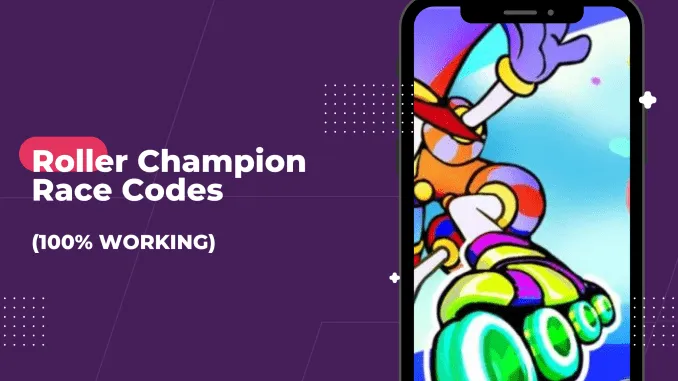The iGaming industry in Malta presents a vibrant dichotomy between live dealer games and Random Number Generator (RNG) systems. These two formats cater to varied player expectations, regulatory requirements, and technological challenges. Each has carved a unique niche in the digital gambling landscape. Dealer games replicate a real-world casino atmosphere with live human croupiers, whereas RNG-based platforms rely on complex algorithms to ensure unpredictable outcomes. Understanding the distinctions is essential not only for operators but also for legal professionals and game developers navigating this evolving environment.
Across global markets, but especially within Malta’s jurisdiction, these modalities are scrutinised differently under law. Players, too, experience these games differently. Live dealer sessions bring a layer of social engagement, whereas RNG-based games offer fast-paced and private interactions. This fundamental divergence prompts varying compliance burdens and technical expectations from providers. As the gaming landscape shifts, the balance between entertainment, security, and legal alignment continues to evolve.
Definitions and Core Differences
At the core, dealer games involve real-time interactions between players and human dealers through video streaming technologies. In contrast, RNG games simulate chance-based events using certified software codes. This distinction impacts how fairness is demonstrated and maintained. While dealers ensure transparency by visibly managing cards or wheels, RNG games depend on cryptographic algorithms for outcome generation, ensuring unpredictability without human input. These are not merely technical distinctions—they reshape user experience and the depth of regulatory oversight required.
Role in Online Gambling Platforms
On licensed platforms, operators often offer both dealer and RNG options to meet diverse player demands. The integration of these systems requires distinct backend support. Dealer platforms necessitate streaming infrastructure, studio management, and trained personnel. RNG modules, on the other hand, call for secure algorithm deployment and consistent result auditing. These differing backend setups influence the operational and compliance strategies adopted by licensed entities under Maltese law.
The Maltese iGaming Regulatory Environment
Malta stands out as a pioneer in regulating online gambling through its comprehensive and mature framework. The Malta Gaming Authority (MGA) leads this effort, enforcing licensing, technical audits, and player protection protocols. The country’s appeal lies in the balance between operator flexibility and stringent regulatory demands. Through this approach, Malta ensures responsible innovation in gaming while maintaining international credibility.
Both RNG and dealer-based offerings are tightly governed, with specific laws addressing fairness, security, and operational transparency. The MGA adopts a technology-neutral stance, emphasising outcome integrity and consumer trust. While innovation is welcomed, compliance remains the bedrock of Malta’s gaming sector. Businesses looking to enter or expand in this field must be equipped to navigate a highly structured, periodically updated legislative BubblesBet Casino login terrain.
Overview of the Malta Gaming Authority (MGA)
The MGA functions as Malta’s central gambling regulator, overseeing all forms of iGaming activity under its jurisdiction. It sets licensing criteria, conducts risk-based audits, and enforces penalties for non-compliance. Since its inception, the authority has evolved into a globally recognised regulator, praised for its adaptive approach. Whether for RNG-based slots or live poker rooms, the MGA’s oversight ensures that games meet fairness and integrity benchmarks. Its role extends beyond enforcement—providing guidance, support, and ongoing supervision to maintain Malta’s credibility in global iGaming.
Licensing Requirements for Game Providers
Obtaining a Maltese licence requires a multifaceted application process. Providers must demonstrate financial stability, technical competence, and a thorough understanding of operational risks. For RNG and dealer services, this includes detailed software documentation, internal control systems, and business continuity plans. The MGA mandates full disclosure and reserves the right to deny or revoke licences based on due diligence findings. Additionally, periodic renewals and compliance reviews ensure that licence holders consistently align with evolving legal standards and best practices.
Compliance and Auditing Mechanisms
Audit procedures are central to the MGA’s enforcement strategy. Licence holders must engage third-party certified auditors to review both operational practices and system outputs. These audits focus on data security, fairness indicators, and responsible gambling safeguards. While dealer platforms undergo inspection of studio protocols and live data feeds, RNG systems are subject to algorithm validation and log analysis. The MGA also reserves the right to initiate random spot-checks or demand immediate access to game servers in case of anomalies or user complaints.
Regulation of Live Dealer Games in Malta
Live dealer games, due to their complexity and human interaction, are subject to enhanced scrutiny under Maltese law. The regulation covers studio conditions, dealer conduct, and real-time data accuracy. Malta requires that these games not only mirror land-based standards but also exceed them in areas such as encryption, real-time monitoring, and viewer delay prevention. With the growth of mobile-first platforms, compliance for dealer games now also includes cross-device compatibility and latency management.
Operators of dealer platforms must ensure an immersive yet compliant gaming experience. This includes everything from ergonomic dealer stations to fail-safe connection protocols. The goal is to replicate the transparency and social aspects of physical casinos while adhering to the rigour of online regulation. By doing so, Malta offers a globally benchmarked environment for live dealer gaming providers and players alike.
Technical Standards for Live Studios
Studio environments for dealer games must meet specific standards on lighting, camera resolution, streaming bitrate, and dealer visibility. Beyond aesthetics, these technical specifications directly influence perceived fairness. Blurred or laggy streams may trigger suspicion among players and lead to regulatory review. Operators must also implement redundancy systems—backup power supplies, dual internet lines, and real-time server failovers—to ensure uninterrupted gameplay and data preservation. These measures uphold Malta’s insistence on continuous service integrity.
Licencing Obligations Specific to Dealers
Unlike RNG-only platforms, live dealer providers must obtain additional approvals covering studio premises and human resources policies. The MGA assesses the competence and background of all staff involved, including dealers, floor managers, and streaming technicians. This comprehensive licensing obligation ensures that any potential human error or misconduct is mitigated through training, surveillance, and disciplinary systems. The transparency of dealer activity, streamed live to users, requires this heightened level of scrutiny to uphold Malta’s player protection priorities.
Supervision of Fairness and Transparency
Every game session is monitored via layered surveillance and metadata logging. These tools allow regulators and internal compliance officers to audit sessions in retrospect and detect any deviation from approved protocols. Additionally, game logs must be stored for an extended period—usually five years—ensuring traceability of every action. Player complaints or irregularities prompt immediate internal review and, if needed, a regulator-mandated audit. This ecosystem of active oversight builds trust and credibility for Malta-based dealer games globally.
RNG Systems under Maltese Regulation
Random Number Generators, pivotal to many online games, are held to strict technical and legal scrutiny in Malta. The fundamental requirement is provable randomness—where game outcomes are neither predictable nor reproducible under the same conditions. Malta mandates that RNG systems undergo independent certification before deployment, with periodic revalidation. These steps safeguard against manipulation, ensuring a level playing field for all participants. Whether in a slot reel or blackjack simulator, RNG compliance is a cornerstone of Malta’s gaming framework.
Unsurprisingly, RNG systems, unlike their dealer counterparts, do not rely on human mediation. As such, they are more susceptible to code-level vulnerabilities or mathematical bias. Malta’s regulations require developers to implement robust, cryptographically secure algorithms supported by verifiable logging mechanisms. In the event of a dispute, these records provide the evidence needed for investigation and resolution. Through this layered approach, RNG fairness and integrity are continuously protected under Maltese law.
Certification of RNG Algorithms
Before an RNG can be used in live environments, it must be certified by an MGA-recognised laboratory. This certification involves statistical analysis, stress testing, and output verification. The goal is to confirm that the number sequences produced display true randomness over time. The tests include uniformity checks, frequency analysis, and entropy validation. The table below outlines some of the key certification tests performed during this process:
| Test Type | Purpose | Expected Outcome |
|---|---|---|
| Chi-square Test | Evaluates number frequency distribution | Even frequency spread across value range |
| Runs Test | Assesses sequence independence | No repeating patterns or predictability |
| Autocorrelation | Checks for value dependence | Minimal correlation between adjacent numbers |
Role of Approved Testing Facilities
Malta maintains a strict registry of laboratories authorised to certify RNG and game mechanics. These facilities must operate independently of operators and software developers to prevent conflicts of interest. Auditors from these labs conduct thorough testing using proprietary tools and standardised methodologies. Their findings form part of the licence application and renewal processes. Without their approval, RNG games cannot legally launch under a Maltese licence. This system ensures third-party validation of core game functions, bolstering regulatory trust.
Security and Tamper-Proofing Requirements
Security is paramount in maintaining the credibility of RNG-based games. Maltese regulation mandates tamper-proof coding practices and secure deployment environments. Developers must ensure that game logic cannot be altered after certification without regulator approval. To enforce this, checksum verifications, hash functions, and digital signatures are commonly used. These mechanisms prevent post-deployment alterations that could compromise game integrity. Operators must also maintain secure server environments, with access logs and intrusion detection systems to track unauthorised attempts at interference.
Fairness and Player Protection Measures
The Maltese legal framework places a strong emphasis on consumer protection, especially regarding fairness in gameplay. Every regulated operator must ensure that players are informed, empowered, and protected from exploitative practices. Transparency in odds, responsible gambling support, and accessible redressal channels are non-negotiable elements of a Maltese licence. These measures, while essential for legal compliance, also serve to build long-term trust between platforms and their users.
Both RNG and dealer games must meet these fairness expectations, albeit through different tools. For instance, a live dealer session might include real-time chat moderation and visible shuffle verification. Conversely, RNG-based games may rely on payout percentage disclosures and result logs. Regardless of format, the ultimate goal is the same—ensuring that the player experience is fair, enjoyable, and within ethical boundaries established by law.
Transparency in Game Outcomes
Malta requires that game outcomes be fully transparent and verifiable. In dealer games, this involves camera angles, replay availability, and visible card management. For RNG games, it means access to previous results, odds calculations, and certified randomisation reports. Players must be able to trust that their win or loss stems solely from chance and not manipulation. Transparency extends beyond mechanics—it includes bonus rules, withdrawal conditions, and system-generated alerts during gameplay. Every point of interaction must reinforce fairness and integrity.
Responsible Gaming Tools for Users
Operators must provide a comprehensive suite of tools that support responsible gambling. These include deposit limits, loss caps, self-exclusion features, and gameplay reminders. Malta obligates operators to proactively detect problem behaviour patterns through algorithmic monitoring. When signs of addictive patterns emerge, interventions—ranging from pop-up warnings to temporary account freezes—are deployed. Here is a summary list of responsible gaming mechanisms mandated under MGA guidelines:
- Voluntary self-exclusion across platforms
- Customisable session time limits
- Mandatory cooling-off periods after prolonged play
- Loss limit enforcement and spending trackers
- Direct access to support and counselling referrals
Dispute Resolution Frameworks
The MGA mandates an accessible and transparent dispute resolution process for all licensed operators. Players can initiate complaints via platform-specific channels or escalate them directly to the MGA. Each complaint must be logged, time-stamped, and investigated according to documented procedures. Operators are obligated to respond within a defined timeframe, and failure to comply invites penalties. An independent adjudication may follow if disputes persist. This robust framework ensures that users never feel helpless or unheard in the event of a disagreement.
Key Legal Distinctions Between Dealer and RNG Games
While both formats are legally permissible under Maltese regulation, there exist critical distinctions in their classification and operational boundaries. Dealer games are treated closer to traditional casino operations due to their human involvement and live nature. RNG games, on the other hand, are classified as software products, subject to digital testing and logic validation. These differences impact everything from licensing structures to recordkeeping mandates. Understanding these distinctions is vital for legal advisors and operational leads seeking regulatory clarity.
The lines may sometimes appear blurred, especially with hybrid models that incorporate both live and automated features. However, Maltese law provides specific guidelines for classifying each game type based on its core mechanism. These legal nuances ensure tailored regulatory treatment, optimising oversight without stifling innovation. Operators with mixed portfolios must ensure compliance on both fronts, adapting their infrastructure and documentation accordingly.
Operational Boundaries and Legal Classifications
Under MGA guidelines, live dealer games are categorised as Class 1 on 4 gaming services, necessitating higher operational scrutiny and human resource management. RNG-based offerings are usually Class 1 standalone or Class 1 on 3, depending on hosting conditions. These classifications influence the application process, tax obligations, and technical inspection cycles. By differentiating services at this legal level, Malta ensures that each format receives the oversight suited to its specific operational risks.
Reporting and Recordkeeping Standards
Operators are required to maintain detailed records of every game session, user interaction, and transaction. These logs must be timestamped, encrypted, and stored for audit purposes. Dealer games need video archives and chat transcripts, while RNG platforms must retain algorithm run data and output sequences. Here’s a breakdown of common reporting obligations by format:
- Dealer Games: Stream logs, shift schedules, dealer training records
- RNG Games: Algorithm audits, randomisation logs, certification renewals
- All Formats: Player complaints, financial records, compliance submissions
Anti-Money Laundering (AML) Concerns
Malta enforces strict AML protocols across all game types. Operators must implement Know Your Customer (KYC) checks, monitor transactional anomalies, and report suspicious activities. Dealer platforms pose unique risks due to higher cash flow visibility, prompting additional surveillance measures. RNG systems require algorithmic transaction pattern monitoring to flag irregular betting behaviour. Regulatory updates have made AML compliance more rigorous, requiring collaboration with local financial authorities. Operators failing to align with these mandates risk licence suspension and significant financial penalties.








